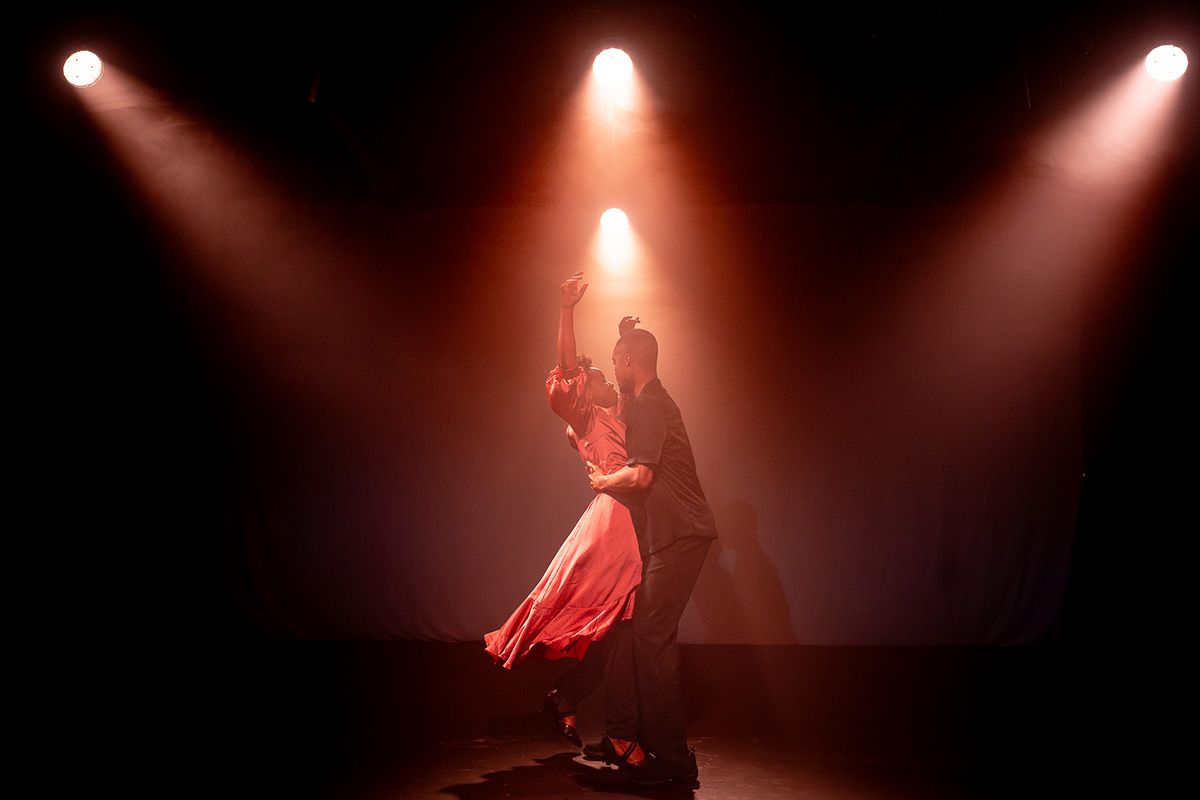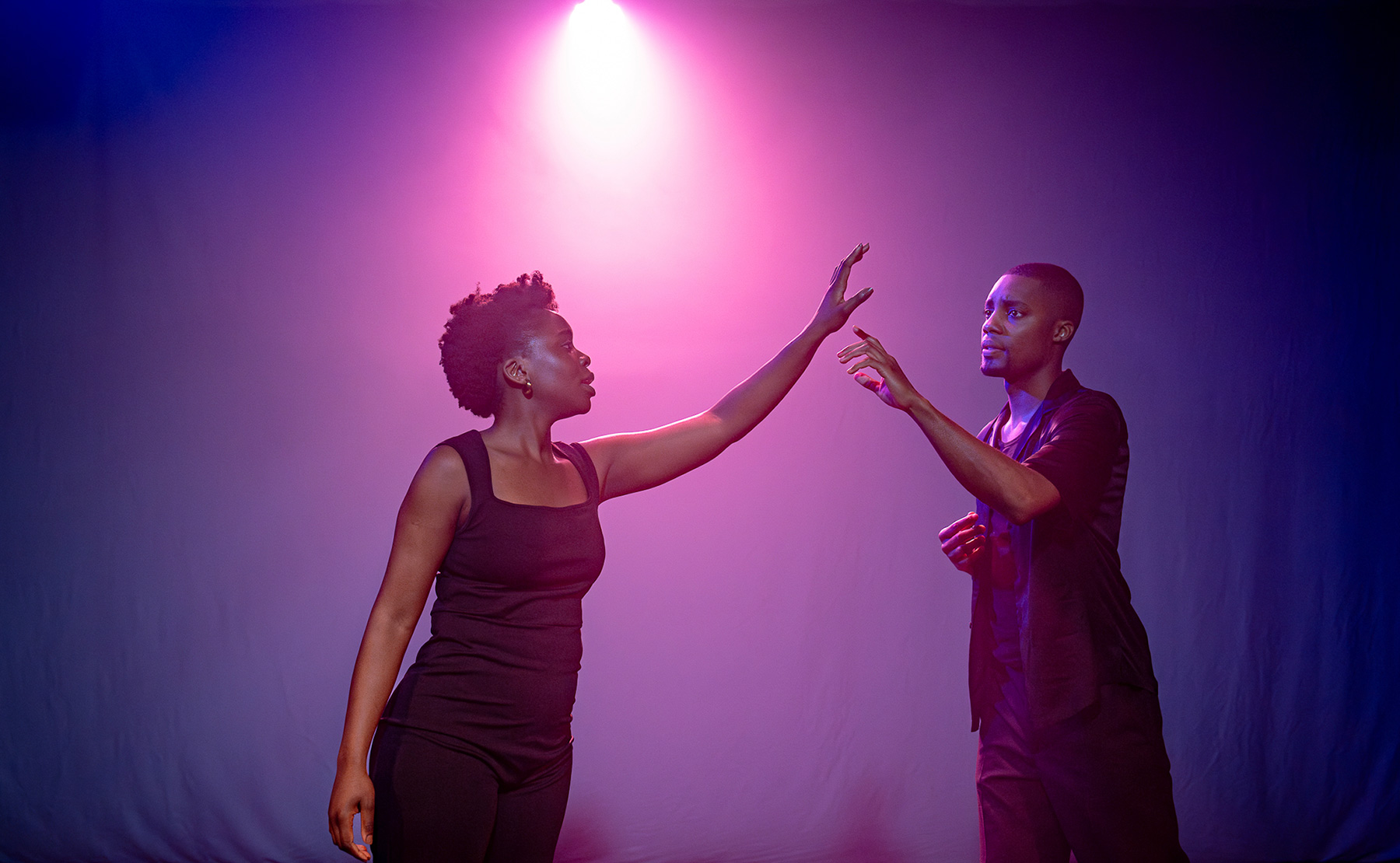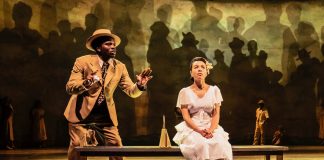
This piece – by writer, director and poet Anastasia Osei-Kuffour is ostensibly one woman’s tension between being an accomplished, independent, successful creative business-woman and the ongoing societal, familial and (church) community pressure to find a partner and enter into a standard heteronormative relationship; thereby commencing and nurturing a traditional family unit.
The narrative thread is created through a series of sharp and well-executed poems, spoken-word pieces and choreographed movement, joined together by short, entertaining character-skits.
Sharon Rose is engaging as the writer’s surrogate; delivering the spoken, dancing and acting elements capably.
Supporting performer Reece Richards also dances and duets strongly, while performing admirably in a handful of roles (e.g. ‘best friend with newborn baby’, ’church elder’, ‘concerned father’, ‘assorted boyfriends/ potential soul-mates’).
Benny Goodman’s lighting is functional, yet supportive, while the set is bare, save for a backdrop onto which is projected various chapter-headings (e.g. ‘crushing’, ‘wondering’, ‘beginning’, ‘dating’, ‘arguing’, ‘breaking’, etc.)

Duramaney Kamara’s sound design and compositions complemented the piece, and Leroy ‘FX’ Dias Dos Santos’ movement was expressive and entertaining, particularly when the performers danced alone.
Ironically, I felt less ‘connection’ during the duetted segments; almost as if the closeness longed for by the female protagonist- and implied by the contextual elements within the narrative – was being deliberately withheld. I’m unclear as to whether this was due to a compromise between choreographer and the performers, a deliberate directorial decision, or a creative oversight.
Which brings me to my main issue. Having exposed the audience to the trials that familial pressure to find a ‘good match’ brings, the tribulations that online dating creates, the slow trauma that a woman’s maternal body clock generates, and the ongoing tension that a church community can engender, I felt short-changed. Certainly, I understood ‘the stakes’. Indeed, I have two sisters who – similar to the writer – are Black, female, highly accomplished within their professional practices…and are both childless and ‘without a partner’.
It might have been interesting to have heard just how the creator’s (presumably) desired path as an accomplished director, writer, producer and poet has infused, informed or challenged her views on love and romance. Presumably, having worked so successfully within a field so divorced from her ostensibly traditional familial and/ or church upbringings, this production might have presented an opportunity to explore these provocations to her nascent and/ or ongoing conservatism.
It’s true that one can ask too much of a production, at times. Perhaps, I should ‘get over myself’ more although in my defense, that is my goal when I attend the theatre.
Need to know: Love Steps plays at Omnibus Theatre until 20 April 2024 and then moves onto Talawa Theatre from 29 May to 1 June 2024.





























